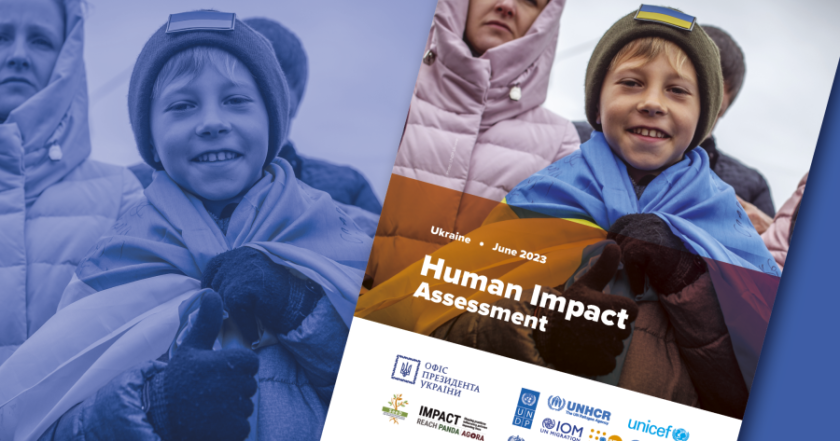Human Impact Assessment reveals stark consequences of war on Ukrainian society

A comprehensive UNDP-led report takes a deep dive into Ukraine's Humanitarian Crisis
The United Nations in Ukraine today released its Human Impact Assessment (HIA), providing comprehensive insights into the effects of Russia's invasion on living conditions, health, access to education, livelihoods, food security, social inclusion, and gender equality. Twelve UN agencies contributed to the UNDP-led joint initiative, implemented at the request of the Office of the President and the Government of Ukraine.
Yulia Sokolovska, Deputy Head of the Office of the President of Ukraine, said the Assessment marks an important milestone in understanding the true human cost of the war in Ukraine. "The Human Impact Assessment provides crucial insights into the resilience of our people, as well as the areas where we need to focus our recovery efforts," he said. "We understand the depth of our responsibility, and are committed to ensuring the needs of our most vulnerable citizens are not just recognized but met."
Denise Brown, UN Resident and Humanitarian Coordinator in Ukraine said: "The data in this Assessment underscores the stark impacts of the Russian invasion, particularly on Ukraine's most vulnerable people. Its recommendations will also help guide the entire UN system as we work with the Government, communities, and civil society in Ukraine, doing what is needed as they navigate their way to recovery."
The Assessment reveals that although living standards and access to basic services stabilized following the initial months of conflict, living conditions faced a setback in winter 2022/2023 due to country-wide utility disruptions. Health and education were similarly impacted with 22 percent of households spending over a quarter of their monthly income on healthcare, and 11 percent of youth identifying a lack of access to quality education.
Other key findings:
- Livelihoods: Unemployment is predicted to stand at 18.3% across 2023; 65 percent of households reported a decrease in income since February 2022; and the share of families with paid work accounting for their primary source of income decreased from 67 percent to 53 percent.
- Gender Equality: 3.6 million people at risk of gender-based violence; 55 percent of women felt unsafe in their daily life; 23 percent of women reported spending 50+ hours per week on domestic chores.
- Food Security: 44 percent of households cannot afford essential needs, driving food insecurity; the proportion of households with inadequate food consumption rose to one-third; and 43 percent of households reported limiting portions, borrowing food, and/or eating cheaper foods.
- Social Inclusion: 45 percent of the population belongs to at least one vulnerable group; IDPs, PWDs, and older persons experienced the lowest income levels; IDPs and Roma communities face discrimination in searching for employment or accommodation.
The HIA concludes with key recommendations for the Government of Ukraine, International Non-Governmental Organizations (INGOs), donors, and International Financial Institutions (IFIs). These include supporting the government in upholding the rights of all groups affected by the war, aiding households and communities in rebuilding their resources, improving access to social protection systems, and implementing recovery efforts focusing on the changing needs of affected populations. Additionally, it urges the establishment of policies aimed at restoring agricultural production, investing in education and skills training, prioritizing livelihood interventions reflecting Ukraine's economic and demographic changes, and building inclusive societies during and post-war period.




















































